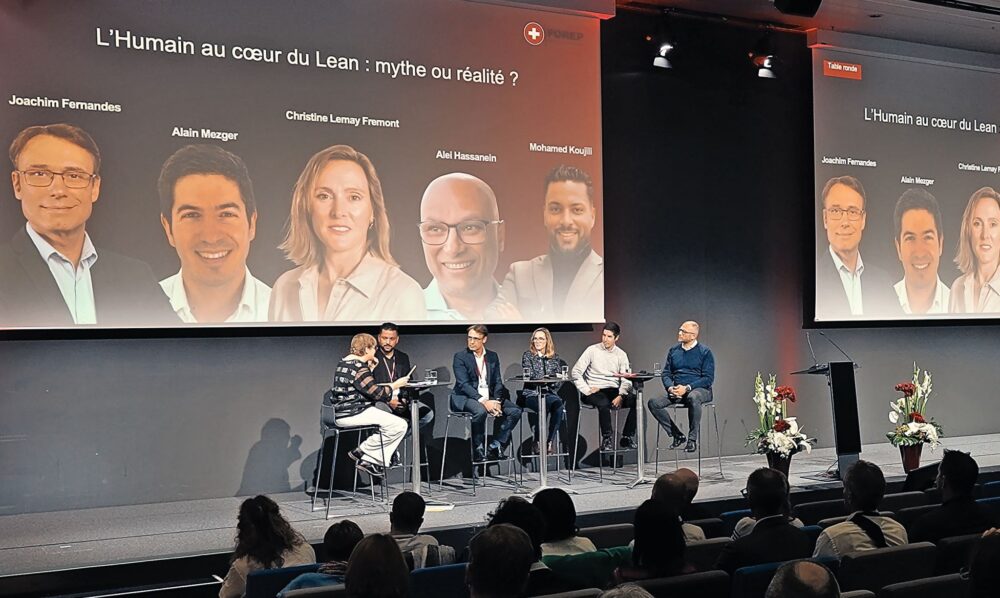Why mindfulness and leadership belong together inseparably
Leaders draw strength and success from their mindfulness. That's why it pays to cultivate it and make it a habit.

Managers are used to setting the tone and calling the shots. They are convinced that many employees expect exactly that from them. But something is quietly and continuously changing here. Younger employees in particular want to bring their own ideas into the workplace. This requires attentiveness from both parts.
What does mindfulness mean? What are the different types of mindfulness?
Mindfulness means carefully perceiving what is. It is especially important to direct mindfulness towards oneself. This can happen in small and of course also in larger units of time. An important part of mindfulness is to just perceive without judging what is perceived. Just perceiving, not holding on, letting it pass by.
First and foremost, you need to be aware of yourself. You always have the opportunity to do this. It is a good idea to introduce a mindfulness ritual in the morning. Wise men from East and West, but also quite normal people of today have had the best experiences with this. They sit down in a quiet place - preferably always in the same place - close their eyes and ask themselves one of these questions:
- What is my body telling me right now? There can be many different answers: Well-being, pain, fatigue, getting fidgety, or something else entirely.
- Where can I feel this in my body? It can be a dumpling in the throat, pressure in the stomach, pain in the limbs and joints, the eyelids twitching, hand clenching into a fist, tension in the neck or something else entirely. Of course, a pleasant tingling sensation of pleasure is also possible.
- What feelings are surfacing right now? Well-being, sadness, joy at a long-awaited event, impatience, anger, fear, excitement, fear of being late, impatience, worry about not passing an exam, or something else entirely.
Perceiving the environment: Sounds from the environment, smells, voices, temperature or something else entirely. People can perceive mindfully visually, auditorily or kinaesthetically, i.e. with their eyes, ears, sense of touch or nose. After such a morning ritual, one can also perceive other people, e.g. a conversation partner, more impartially. His voice, tone of voice, facial expressions, gestures, the individual words. Unbiased, i.e. attentive perception, means immediately recognizing one's own assumptions as such and not assigning them to the interlocutor.
Managers evaluate too quickly
Many people find it difficult not to immediately evaluate what they perceive, as mute expert Edith Karl knows. Managers in particular are often far too quick to judge. The entrepreneurial guide Edith Karl knows the advantages of not immediately evaluating what is perceived. We have to sort perceptions first: What evaporates quickly anyway. What seems important to me? How can I mindfully question what I have perceived with my senses? Preferably free of assumptions. In this way one experiences much more.
An example of this: The manager sees one employee sitting behind his computer screen, smiling. Most of the others look serious. What do you think he's doing? Is he not working hard enough, one quickly thinks. But this manager asks: What makes them smile? The employee shows her his new further training programme, which he is working on during working hours as agreed. Now they can be happy together about a training program that not only imparts knowledge, but also joy. The employee has even applied parts of what he has learned in his work. This makes both the employee and the manager happy.
Further information:
Edith Karl is managing partner of PowerManagement GmbH, motivational speaker and inspiring interview partner. Her podcasts are already listened to in 106 countries. Edith Karl's thesis, Europe's 1st mute expert, is: "It can't go on like this. People and business have to move together again in a more meaningful way!" Over the course of three and a half decades as an entrepreneurial guide, she has developed the "new rules of the game for people and business today".
Here it goes to a live lecture by Edith Karl









